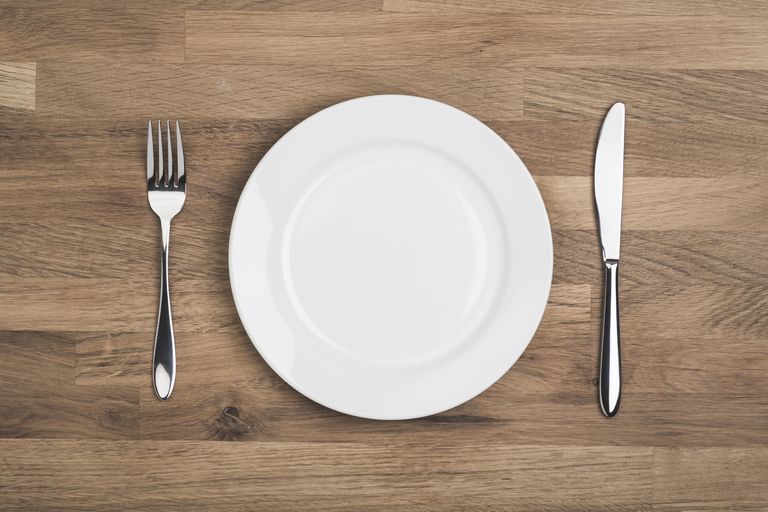Should All Thyroid Patients Take Iodine?
Many practitioners—in particular, alternative, holistic or herbal practitioners—will tell you that if you have a thyroid problem— whatever type of problem it might be—you need supplemental iodine.
They may recommend you take it in the form of straight iodine (i.e., Lugol’s solution), as a food like seaweed, as a food supplement like kelp, or as an herb, such as bladderwrack, that contains high levels of iodine.
Should Thyroid Patients Take Iodine?
Iodine is an essential element that enables the thyroid gland to produce thyroid hormones, and you need the proper amount of iodine for optimal thyroid function.
A severe iodine deficiency can cause hypothyroidism, goiter (enlargement of the thyroid), and even developmental problems like cretinism. Less severe deficiency is linked to hypothyroidism, goiter, and hyperthyroidism. At the other end of the spectrum, excessive iodine intake is associated with hypothyroidism and goiter as well.
There are many areas around the world where soils are low in iodine must be added to the diet—usually through iodized salt. In the U.S., the area around the Great Lakes used to be known as the goiter belt because the soil is iodine-deficient, and this caused goiter among area residents.
Since iodine was added to salt earlier in the 20th century, the problem of iodine deficiency in the U.S. was nearly eliminated.
Not so in other countries that did not have such concerted iodization programs. In 1999, experts announced that iodine deficiency continues to be a serious threat to global health. Insufficient iodine is, in fact, considered the most common—yet preventable—cause of brain damage in the world, with 1.6 billion people at risk.
Children with even mild iodine deficiency can suffer from stunted growth, mental retardation, lowered IQ, problems in movement, speech or hearing. Worldwide, iodine deficiency actually affects some 50 million children. The World Health Organization estimates that some 1 billion people around the world are at risk of health problems due to iodine deficiency.
Iodine deficiency is currently on the rise again in the U.S. The National Health and Nutrition Examination Survey from 1971-74 found that 2.6% of US citizens were iodine deficient, and the followup 1988-1994 survey found that number was now 11.7%. Over the past 20 years, the percentage of Americans with low iodine intake has more than quadrupled. (JCEM, 10/98) Of particular concern is that the percentage of iodine-deficient pregnant women have increased from 1% to 7% over 20 years.
It is suspected that the cause of the low iodine may be reduced salt in the diet, plus a reduction in the use of iodine as a food ingredient. This trend, however, may necessitate efforts to increase iodine levels in people at risk of deficiency—even in the U.S.
Should You Take Iodine?
Taking iodine or foods and supplements that contain iodine to help your thyroid can be problematic because many cases of autoimmune thyroid disease—by far the most common cause of thyroid conditions in the U.S.—are not due to iodine deficiency.
Your physician or nutritionist can test your iodine levels via a urinalysis test. But, if like many patients, you decide on your own to try kelp, iodine, or a thyroid-support supplement (almost all contain high iodine), be aware of the risks.
Most doctors say not to worry about some iodized salt or the iodine present in a food item such as an occasional sushi dinner. But even alternative nutritional doctor Stephen Langer, MD, author of Solved: The Riddle of Illness, the follow-up book to Broda Barnes’ Hypothyroidism: The Unsuspected Illness, advises against taking iodine or kelp supplements for people with autoimmune thyroid disease.
Hormone expert David Brownstein, MD, also offers caution regarding iodine. “Iodine supplementation in those that have an autoimmune thyroid problem can be akin to pouring gas over a fire. However, with hypothyroid conditions that are not autoimmune in nature, iodine-containing foods can actually help the thyroid function better.”
Personally, I’m one of those people with autoimmune thyroid disease who simply does not do well with supplemental iodine. The times I have tried iodine supplementation in any form—beyond the very small amounts of iodine contained in some supplements—I have had what I call an “iodine crash.” Within a day, I notice my thyroid enlarging slightly (goiter), and feeling tender. Within three days, I am exhausted and achy all over my body.
Be careful about iodine—it may be a help to you, but like me, you may also be sensitive to supplemental iodine.
Source: verywell.com
“Should All Thyroid Patients Take Iodine?” by:Mary Shomon


